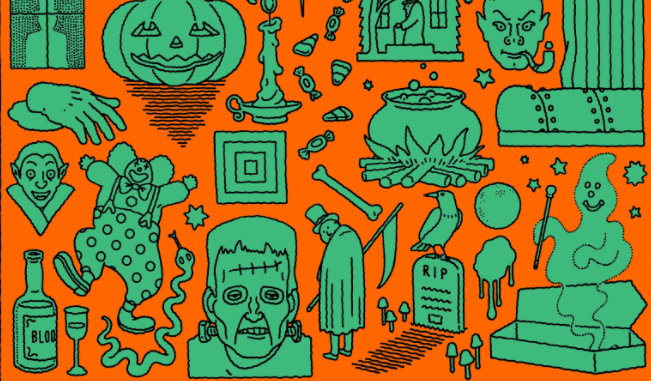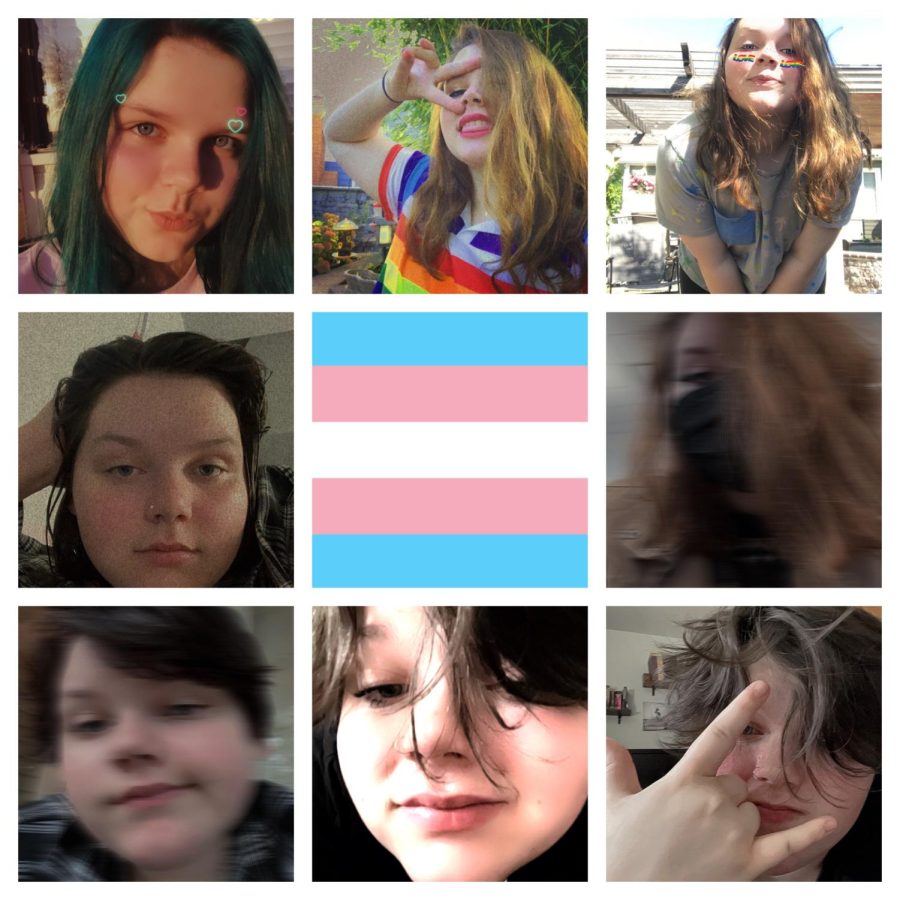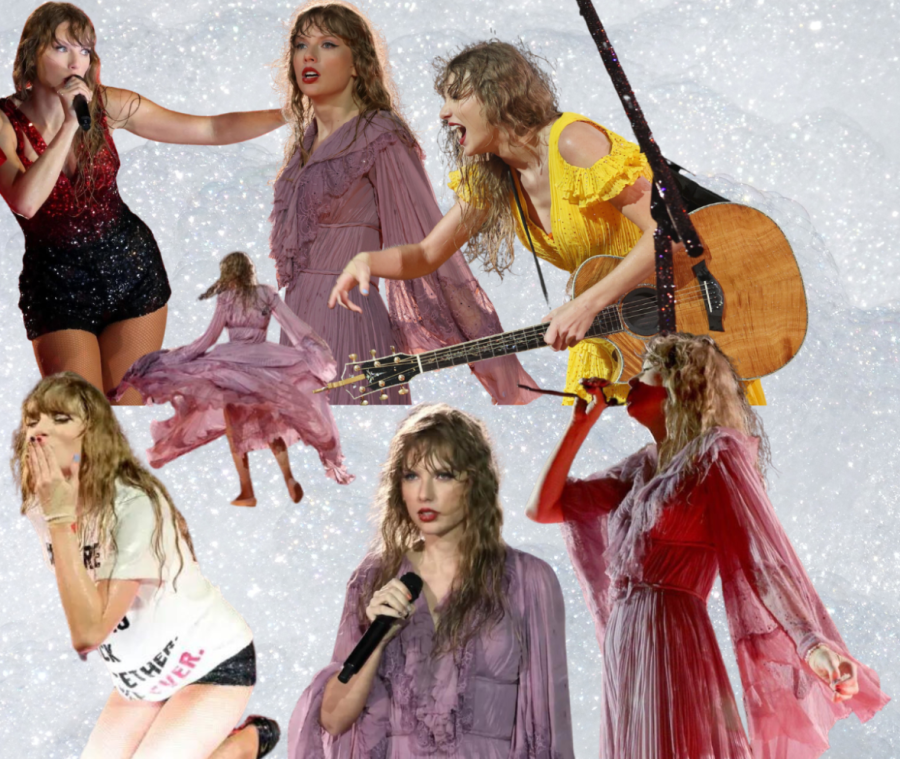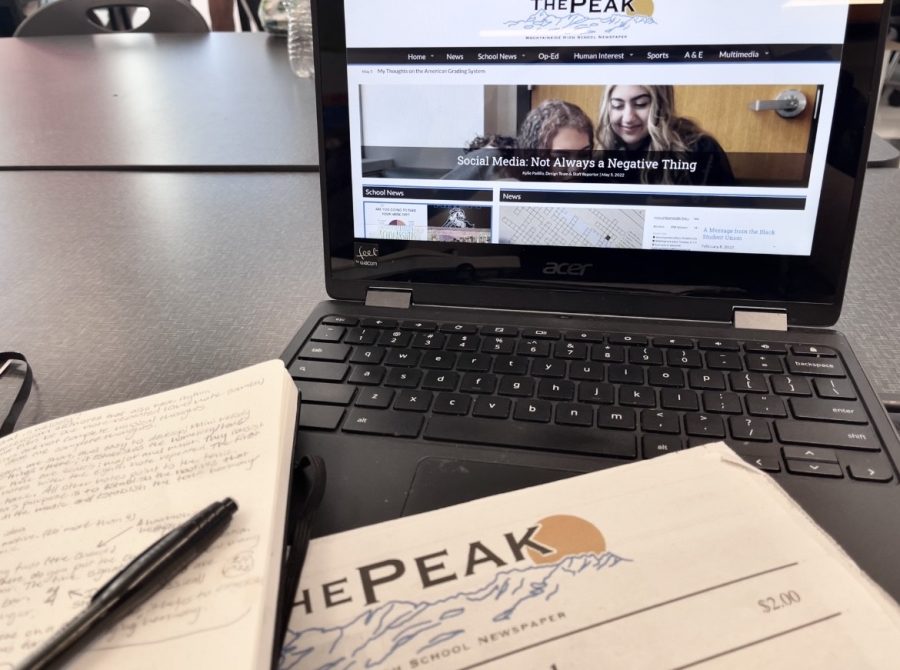The History and Origin of Halloween
October 30, 2021
Halloween can be described as a fun holiday for people all around the world, either a party at school, an excuse to dress up as your favorite character without being called a weirdo, or a chance to steal candy from kids, we all have different outlooks on it. That’s especially true to different cultures, where you see people celebrating Day of The Dead, Ghoul’s Festival, and Obon. Over the years people have either described Halloween as a long-lost pagan tradition, just a silly little holiday, or a way to hide from demons using your Spirit Halloween makeup and outfits, and with that being said, what is Halloween, and how did it start?
The Origin of Halloween, or at least one of the first versions of it, can date back to around 2,000 years ago, where Celtic people celebrated Samhain [Sow-in]. “This day marked the end of summer and the harvest and the beginning of the dark, cold winter, a time of year that was often associated with human death. Celts believed that on the night before the new year, the boundary between the worlds of the living and the dead became blurred. On the night of October 31, they celebrated Samhain when it was believed that the ghosts of the dead returned to earth.”[1]
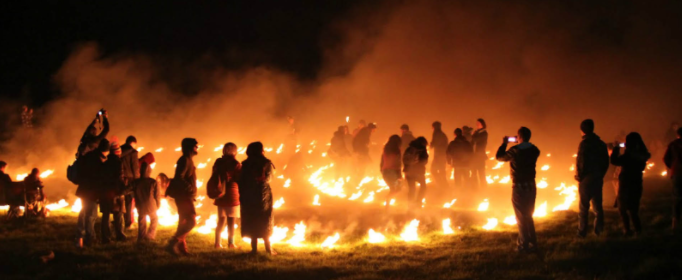
During this night people would carve faces into turnips, and using huge bonfires would light them with the embers while offering animal sacrifices and celebrating their ancestors. As they wear costumes of animal heads and skins, they would also try to predict each other’s futures. The Celts, who are now Brittany, Cornwall, Ireland, the Isle of Man, Scotland, and Wales, still celebrate this holiday, but only Wales, Scotland, Ireland, and Brittany have native speakers of Celtic languages and sadly, it’s not the most prominent language spoken in said countries. When the Irish first immigrated to America, it didn’t stop them from celebrating Samhain, as they soon found out that pumpkins were far easier to carve, so they swapped out turnips for them. The tradition still lives on as Europeans, witches, spiritualists, etc. are happy to share their baked goods recipes and family stories, thankfully without the animal heads.[2]
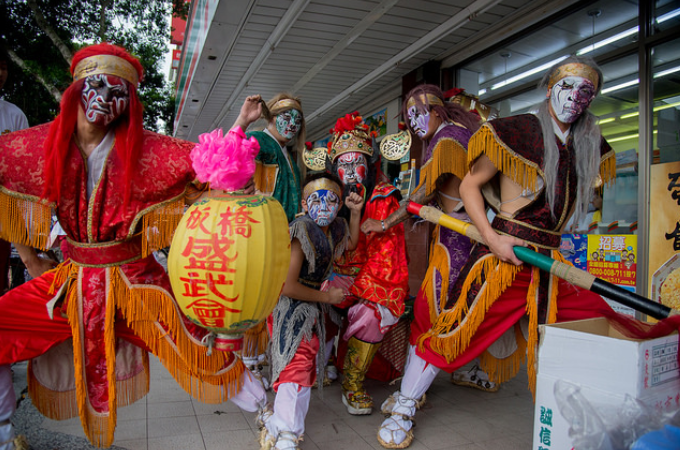
Throughout the years of generations immigrating from place to place and learning from other countries, of course, we would get other similar holidays. There is a holiday called Ghost Festival, a Halloween-like festival in Asia, “It is celebrated in mainland China, Hong Kong, Macau, and Taiwan and by Chinese communities in Singapore, Malaysia, Indonesia, and elsewhere. Ghost Festival takes up the entire seventh lunar month, which roughly corresponds to August in the Western calendar. The fifteenth day of the month, known as Ghost Day, is considered to be the most important day of the festival. It is believed that the gates of hell are opened during Ghost Month and ghosts are free to walk the Earth.“[3][4]
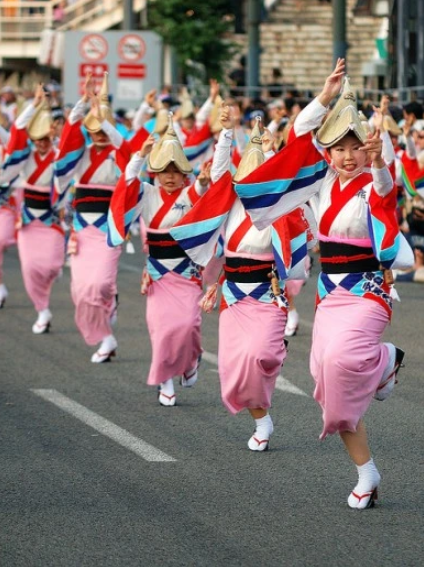
Similar to that is the Japanese holiday Obon, which some people speculate originates from the Ghost Festival, but they do have their differences. While most Halloween-like holidays take part in the Fall months, like October and November, Obon celebrates on August 15, others celebrate on July 15th, and some celebrate it on the 15th day of the seventh lunar month, which varies in our western calendar, depending on the region in Japan. Similar to Ghost Festival, they celebrate their ancestors and believe that their spirits come back to visit their old homes, and because of this, they use it as a time to have family reunions. They also have a dance called the Obon Dance, which used to have a large religious significance, but it’s now just a symbol of summer.[5]
Other holidays like this include All Saints’ Day, a Christian-dominated holiday where they celebrate saints and loved ones on November 1st. All Souls’ Day, which is nearly identical to All Saints’ Day, is celebrated on November 2nd. [6]
El Día de Los Muertos, or Day of the Dead, is a Mexican holiday also celebrated on November 2nd, and is a very important holiday that should be treated with respect, as it’s a way for people to reconnect with their late loved ones and honor the dead. Symbols of the day of the dead include marigolds, sugar skulls, colorful banners, and home-baked goods.
There’s also Mischief Night, a Northern England holiday, where older children and teenagers are allowed to roam free and partake in petty vandalism. In the US and Canada, it’s observed on October 30th, while the traditional date is November 4th, the night before Guy Fawkes Night is a holiday that ¨marks the anniversary of the discovery of a plot organized by Catholic conspirators to blow up the Houses of Parliament in London in 1605. Many people light bonfires and set off fireworks.¨[7], which is another England holiday celebrated on November 5th.
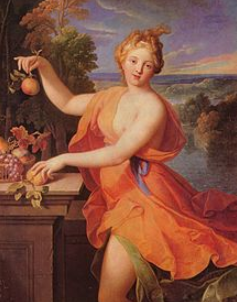
Other European holidays include Pomona, a holiday named after the Roman goddess Pomona, and they had a festival in her honor in early November. The amount of popularity that came with Pomona resulted in it being a big influence on Halloween in the United States. ¨The goddess Pomona was associated with abundance, the harvest, and fruit, especially apples and nuts. Her husband was the god Vertumnus who was associated with the change of seasons. The festival of Pomona was held around November 1. It is likely that during the festival Romans thanked the gods of water and fire for not destroying their crops and offerings of nuts and apples were made.¨[8] Not only that, but because the Romans and Celts were living side by side in areas that are now current day England, it may have also influenced Samhain, which as said at the beginning of this article, is one of the first ends of autumn holidays that have a major impact on our modern Halloween.
Finally, on the list of holidays I will include, is the Romanian holiday Day of Dracula. On October 31st, people all over the world travel to Transylvania and explore the hidden tunnels and secret staircases, while learning about the 14th-century fortresses and the lore of vampires. Along with this, they almost always have costume parties that more than a thousand people attend every Halloween.
People celebrate these all over the world, the most common theme being celebrating your loved ones, telling family stories, going to parties, dancing, learning, and baking amazing foods, so maybe next year we´ll be able to take part in these holidays and much more, especially if you want to connect with your ancestral roots. With that being said, I hope you enjoyed this list of holidays and learned something you didn’t know before reading this.



